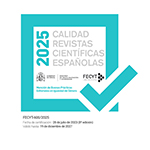Translating the Memory of the Holocaust: Thomas Geve’s Memoir
Résumé
This paper explores the most significant challenges of translating the memory of the Holocaust, focusing on the difficulties of transferring a survivor’s testimonial account to a different linguistic and cultural system. Because the concentration camp experience is inherently multicultural, and survivors have chosen to pen their ordeal in several languages, translation epitomizes a discipline that intertwines directly with the construction of universal collective memory. Consequently, translating Holocaust memoirs poses challenging questions on hermeneutics and deontology. Throughout the following pages, I will critically analyze my own Spanish rendition of Thomas Geve’s memoir, Guns and Barbed Wire: A Child Survives the Holocaust (1987), so as to delve into the ethical commitments borne by a translator, and into the formal and stylistic complexities inherent to the translation of concentrationary literature.
Téléchargements
##submission.format##
Licence
La revista Estudios de Traducción, para fomentar el intercambio global del conocimiento, facilita el acceso sin restricciones a sus contenidos desde el momento de su publicación en la presente edición electrónica, y por eso es una revista de acceso abierto. Los originales publicados en esta revista son propiedad de la Universidad Complutense de Madrid y es obligatorio citar su procedencia en cualquier reproducción total o parcial. Todos los contenidos se distribuyen bajo una licencia de uso y distribución Creative Commons Reconocimiento 4.0 (CC BY 4.0). Esta circunstancia ha de hacerse constar expresamente de esta forma cuando sea necesario. Puede consultar la versión informativa y el texto legal de la licencia.









